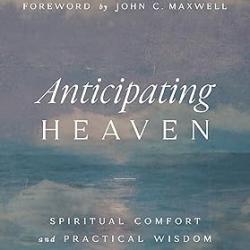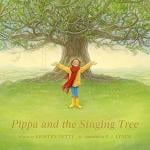No doubt we’ve all asked on many occasions “what on earth is she doing with him? She’s smart/attractive/funny/ambitious/employed/virtuous, while he’s dumb/ugly/dull/lazy/unemployed/wicked.”* To help Christian women who find themselves in such situations, Deepak Reju has written the dating guide She’s Got the Wrong Guy: Why Smart Women Settle.
And just for the record, the subtitle is a bit misleading. We’ll see why in a minute, but it’s not really a book about why ‘Smart’ women settle, it’s a book about why ‘Christian’ women settle (and why they shouldn’t). But within that category of ‘Christian,’ there’s an even smaller subset that Pastor Reju seems to have specifically in mind. More on that in a minute.

The book is broken into three sections: The first provides a brief overview of the problem and why women find themselves in a bind; the second introduces ten kinds of men who are ‘the wrong guy;’ the third discusses how to move forward once the dating situation has been properly understood. (Namely, how to break up with the wrong guy; identify and pursue the right guy;** and wait patiently and endure in the meanwhile.) Overall, this book’s theology and application are sound, and I’m happy to recommend it.
And yet, I’ve still got a few quibbles to bring up. And again let me stress that these are quibbles, not serious objections: I do recommend this book.
First, a question: Who exactly is the book’s target demographic? The cover, complimentary quotes, and introductory chapters all claim to be targeting “single Christian women.” These aren’t the exact examples used in the book (mostly because I’m too lazy to run through and type them all out—see chapter 13), but many of them tend to run something like this:
- Suzie was pushing 40, and started to date Bill, despite Bill’s chronic anger issues.
- Elaine is in her late 30s, and started to date Tom, despite Tom’s laziness.
- Wilma is 38, and started to date Joe, despite the fact that Joe is not a Christian.
Let’s go ahead and agree that the problems of all the men in these scenarios are such that they should be dropped like they’re hot. There is still another factor that seems to connect many of the examples in this book—they’re single, they’re Christian, they’re women, but they’re also people who’ve largely aged out of the ‘young adult’/’standard singles ministry at church’ groups.
Now, theoretically, I don’t know how much that matters. Good advice is good advice, and considerations for dating at 40 shouldn’t be that different from considerations for dating at 20. And yet, I suspect that somewhere there might be some non-theoretical, practical differences that do matter. If someone wants to be married and have kids and is approaching an age that creates a biological challenge, in what ways might these changed biological conditions legitimately affect the dating scene? Obviously age is not an excuse to sin, but I feel like it should be considered somehow. I think Chapter 17 especially needs to be considered in this light—waiting is in fact an aspect of the Christian life and a Godly virtue, but what does it mean to be told to ‘wait’ when you’re 40, as opposed to when you’re 20, when what you’re waiting for is the possibility of marriage and children? These questions are occasionally briefly mentioned, but they’re never really worked out.
This leads to a second question: Just where are all the ‘right’ guys? The portrait of such a man is painted in Chapter 16, “In Pursuit of a Real Christian Man.” This portrait is Biblical and compelling.*** However, the attributes described in this portrait are also the attributes you would expect not in a young man entering the dating scene but rather in a man in his fifties who has been an elder for two decades and a Christian for four. In fact, the example of a real Christian man used in Chapter 16 is exactly this: an older gentleman faithfully caring for his wife through her Alzheimer’s. Which is absolutely, definitely, a model of Christian faithfulness. It is also not a model one might reasonably expect to find on the normal dating scene. If you’re in your twenties and dating and aiming at marriage in your own age group, you’re almost certainly not going to find the ‘right’ guy according to this standard. To that end, the book makes the following suggestion:
“Distinguish between a guy who is committed to Christ and earnestly desires to grow, but is immature in some of his decisions, and a more problematic man who is characterized by anger, or pride, or laziness, or passivity, or isolation, or unbelief, or control. These are two completely different kinds of men. Some men have sin patterns that make them unworthy of being a husband, until the Lord humbles them and they see their need for Christ. Choose wisely. The imperfect guy—the one who is growing in Christ and still has growing to do as he figures out how to be a boyfriend and a husband-give him a chance. Ditch the problematic man. Stay away from him. (138)”
I think this should have been expanded on a bit—particularly since many women may genuinely believe that their ‘wrong guy’ is in fact just an imperfect guy. To be fair, though, it’s a book about the wrong guy, not a book about the right one. Maybe we’ll see a companion volume down the road?
Now, that said, there are mature Christian men out there who are looking to be married. Men who are in their mid-thirties, forties, and even early fifties who are looking to get married or re-married. The problem here is that these men all too often aim at (or find themselves drawn to) women in that younger demographic—the twenty-somethings. I don’t want to impugn the motives of such men, so I’ll not speculate as to why they don’t pursue godly women in their own age bracket—those same women who have followed Reju’s advice and waited patiently and faithfully for the gift of a marriage, and who are often under-appreciated by the younger single men in the congregation. Instead, I’ll just suggest that yet another companion volume might be written to mature men in the same circumstance as the women this book aims at.
To repeat, this is a good book and I do recommend it. I just think it had a few kinks that could have been hammered out a bit more.
* I suppose there might be examples going the other direction, of the amazing guy dating the less-than-amazing gal, but none of those immediately come to mind, and I doubt they’d sell many books even if they did.
** Or, you know, be pursued by the right guy—Deepak Reju is a good complementarian after all!
*** I mean, I assume it is compelling—clearly I’m not looking for a Christian man of any sort, whether ‘real’ or otherwise. So, you know, you might check to confirm this elsewhere.
Disclaimer 1: I received this book for free from the publisher for the purposes of review. I was not required to write a positive review.
Disclaimer 2: I am friends with the author. Not, like, BFF’s or anything, but he was one of my pastors for several years.
Dr. Coyle Neal is co-host of the City of Man Podcast and an Assistant Professor of Political Science at Southwest Baptist University in Bolivar, MO. He is the wrong guy.













